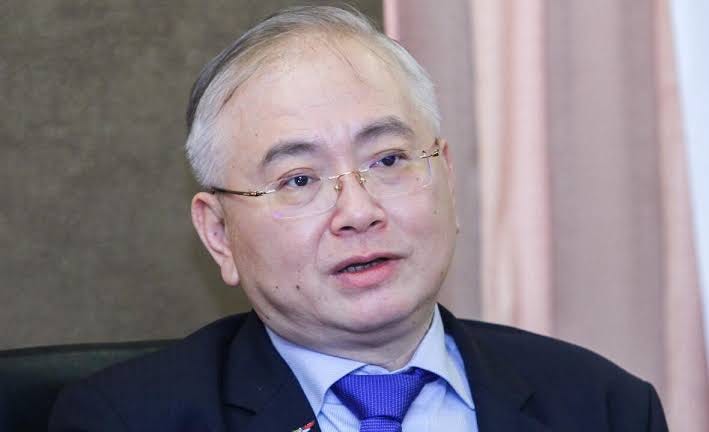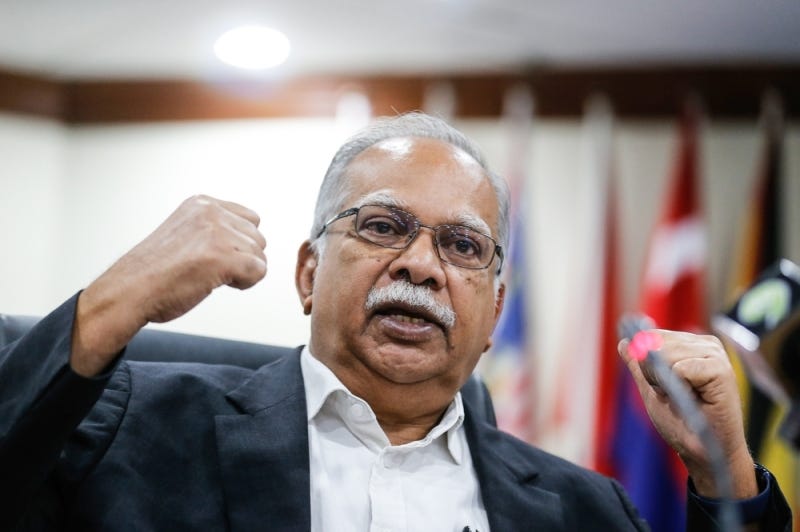
Murray Hunter
Guest Editorial: The DAP’s silence vs MCA’s accountability : A question of courage
Prof. Dr. Ramasamy
Dec 15, 2024

The Ayer Hitam MP and MCA president, Wee Ka Siong, has displayed more courage than the collective leadership of the current DAP.
Despite being part of Barisan Nasional (BN)—a component of the unity government—Wee has shown a greater sense of accountability and responsibility than the sycophantic and appeasing tendencies seen in the DAP or other Pakatan Harapan (PH) coalition members.
Wee recently broached the controversial issue of the alleged “royal addendum,” a document purportedly granting former Prime Minister Najib Razak a reduced sentence of house arrest.
Following Najib’s royal pardon, his prison term and fines were halved. However, the alleged addendum suggests a further reprieve.
The question remains: does the royal addendum exist?
Prime Minister Anwar Ibrahim avoided directly addressing the matter in Parliament, citing sub judice due to Najib’s family’s ongoing court appeal concerning the addendum’s authenticity.
However, in Malaysia’s legal system, where judges—not juries—determine outcomes, the relevance of sub judice is debatable.
Two critical issues arise here. First, does the royal addendum exist? Second, if it does, was it issued based on the advice of the Pardons Board, which operates under the Prime Minister’s direction?
Anwar’s response appeared disingenuous, implying that if the royal addendum exists, it is solely under the Agong’s prerogative.
While certain decisions, like appointing the Prime Minister or granting honors, lie within the Agong’s exclusive discretion, other matters—such as pardons—are constitutionally subject to the Prime Minister’s advice.
Shifting responsibility to the Agong in this case is a political maneuver that avoids accountability.
Anwar’s stance reflects a Tamil proverb about holding and washing a slippery fish—dodging clear answers instead of addressing controversy head-on.
Malaysians expect stronger political will from him to tackle sensitive issues decisively rather than allowing them to fester.
For decades, the MCA, MIC, and Gerakan were vilified by the “heroic” DAP for their subservience to Malay-dominated hegemonic powers.
Today, however, the DAP, with 40 MPs, appears to have abandoned its anti-establishment ideals, opting instead to remain silent, ostensibly to safeguard power, positions, and perks.
In contrast, Wee Ka Siong, the MCA’s sole MP, has shown the fortitude to question the government—a courage glaringly absent in the current DAP leadership.
Prof. Dr. P Ramasamy

Malaysian, 75 years of age. Former professor of political economy UKM. Former Senior Research Fellow, ISEAS. Former Visiting Professor, University Kassel, Germany. Deputy Chief Minister Penang, 2008-2023. Former member of parliament, 2008-2013. Three terms Perai state assemblyman. Former Chairman of Penang Hindu Endowments Board. Involved in peace talks in Aceh and Sri Lanka. International peace consultant. Chairman of political party Urimai.
The DAP is using Najib Razak's pampers as fresh wipes.
ReplyDeleteNo...both Wee and Palani Ramasami are acting as shit stirrers.
ReplyDeleteRespect the Court process.
Whether trial verdicts are by judge or jury makes no difference to the need to respect the judicial process.